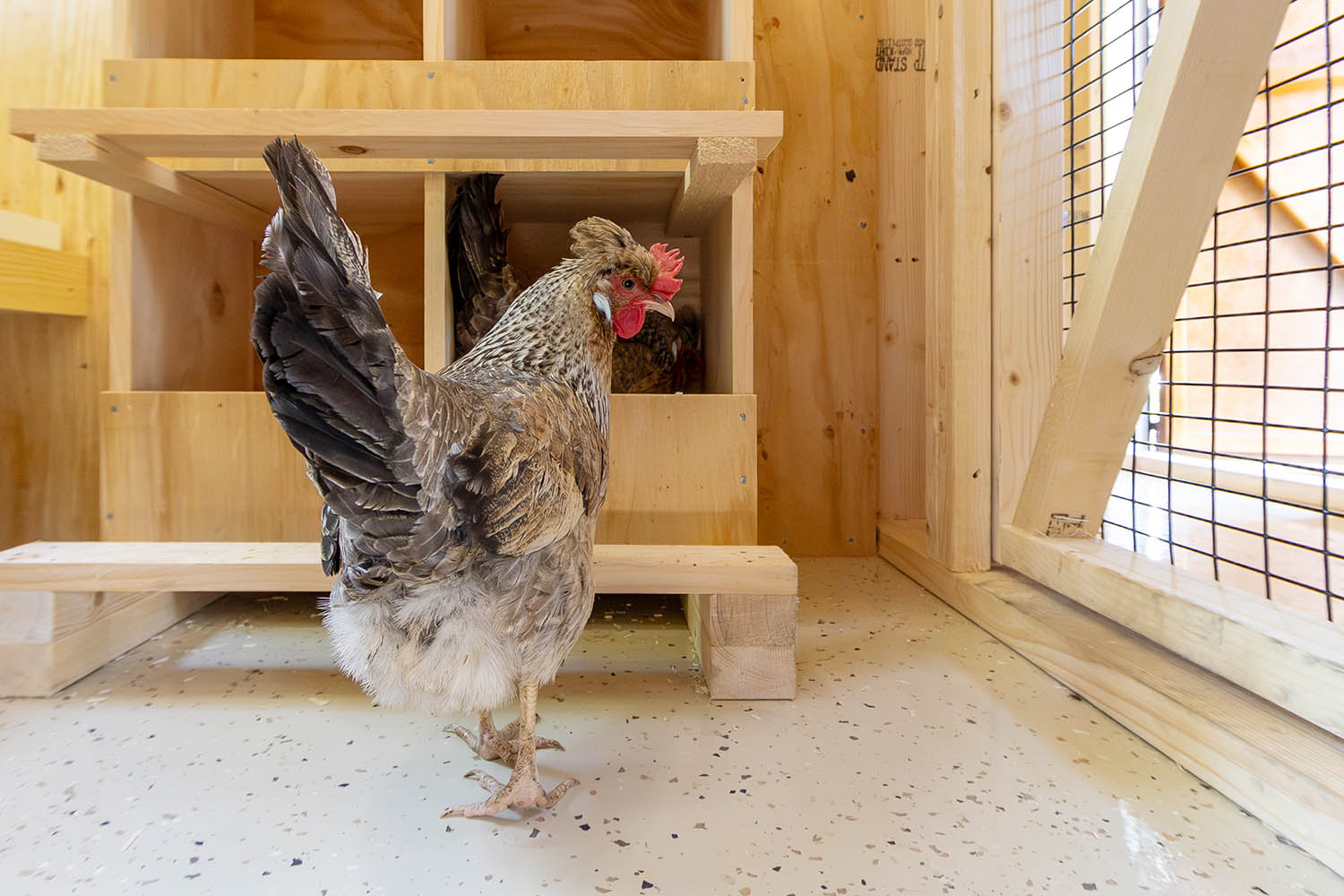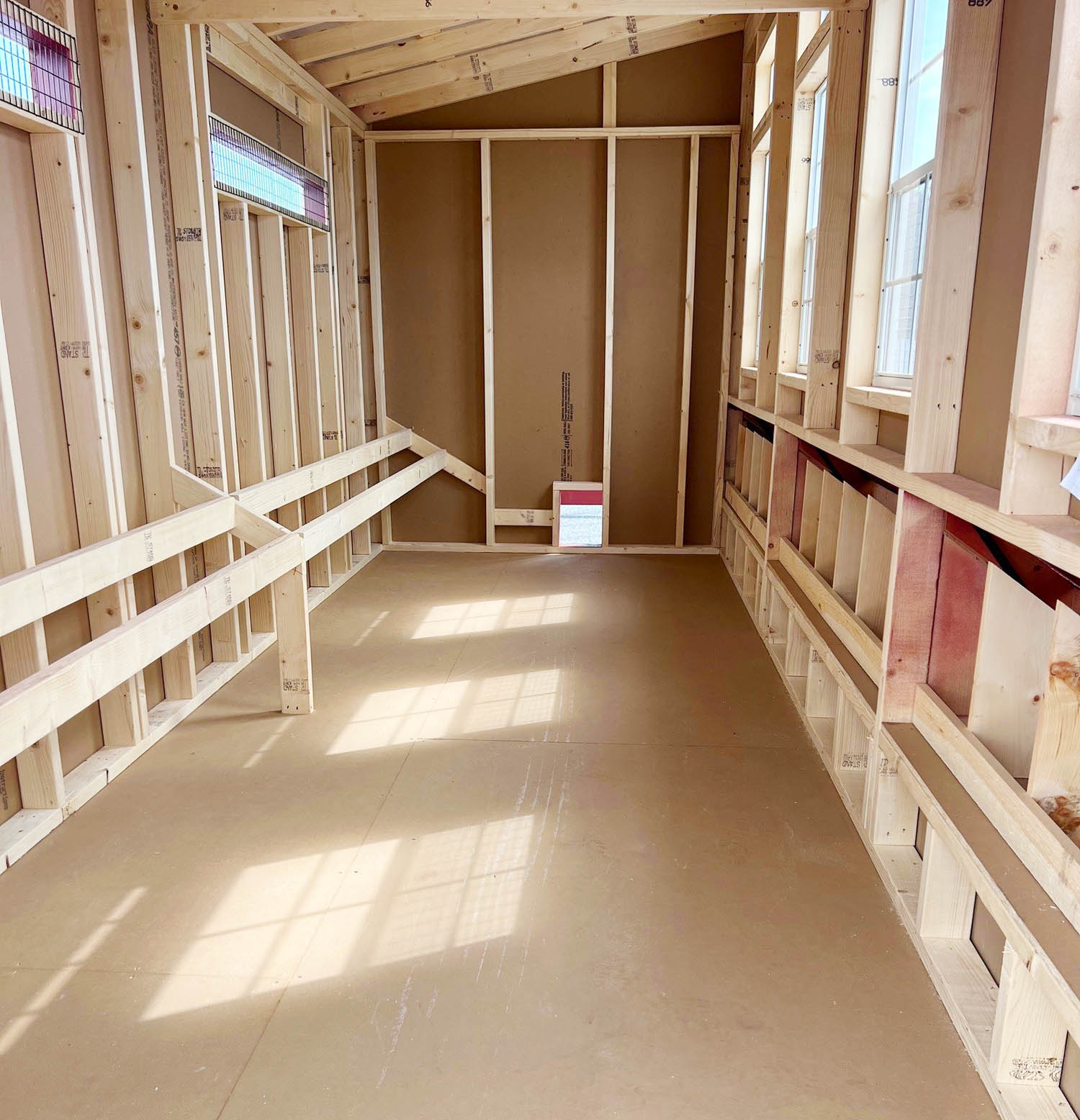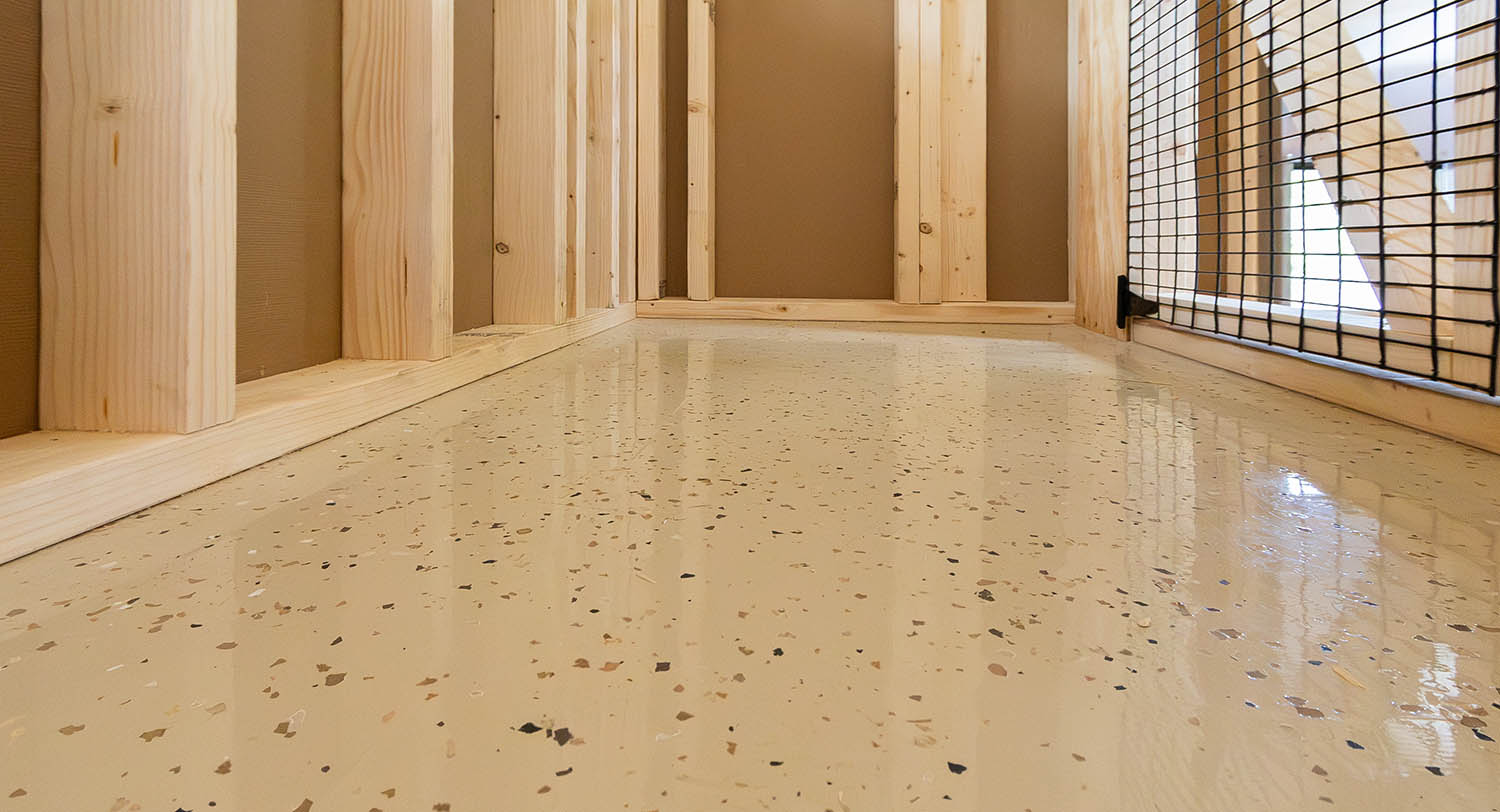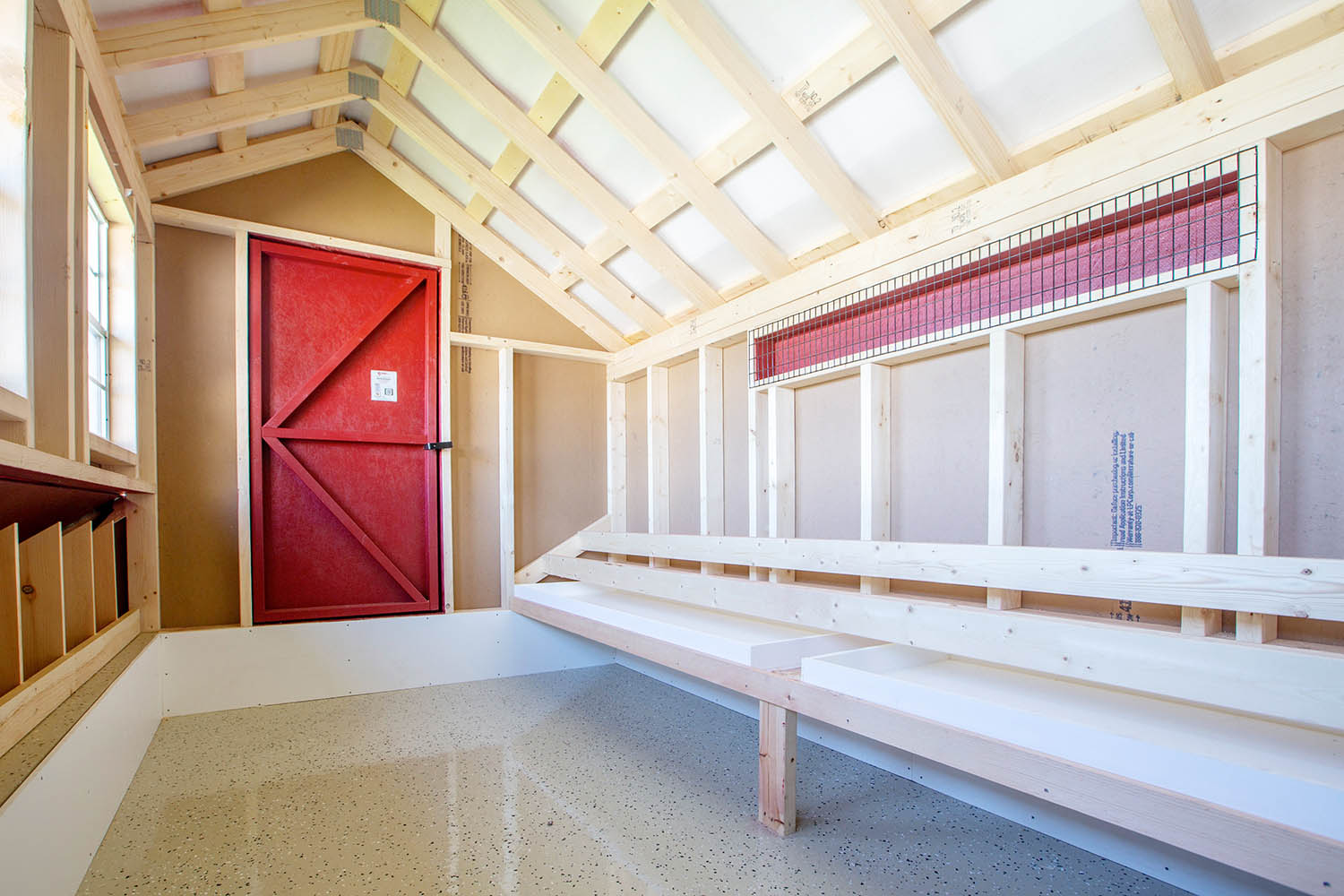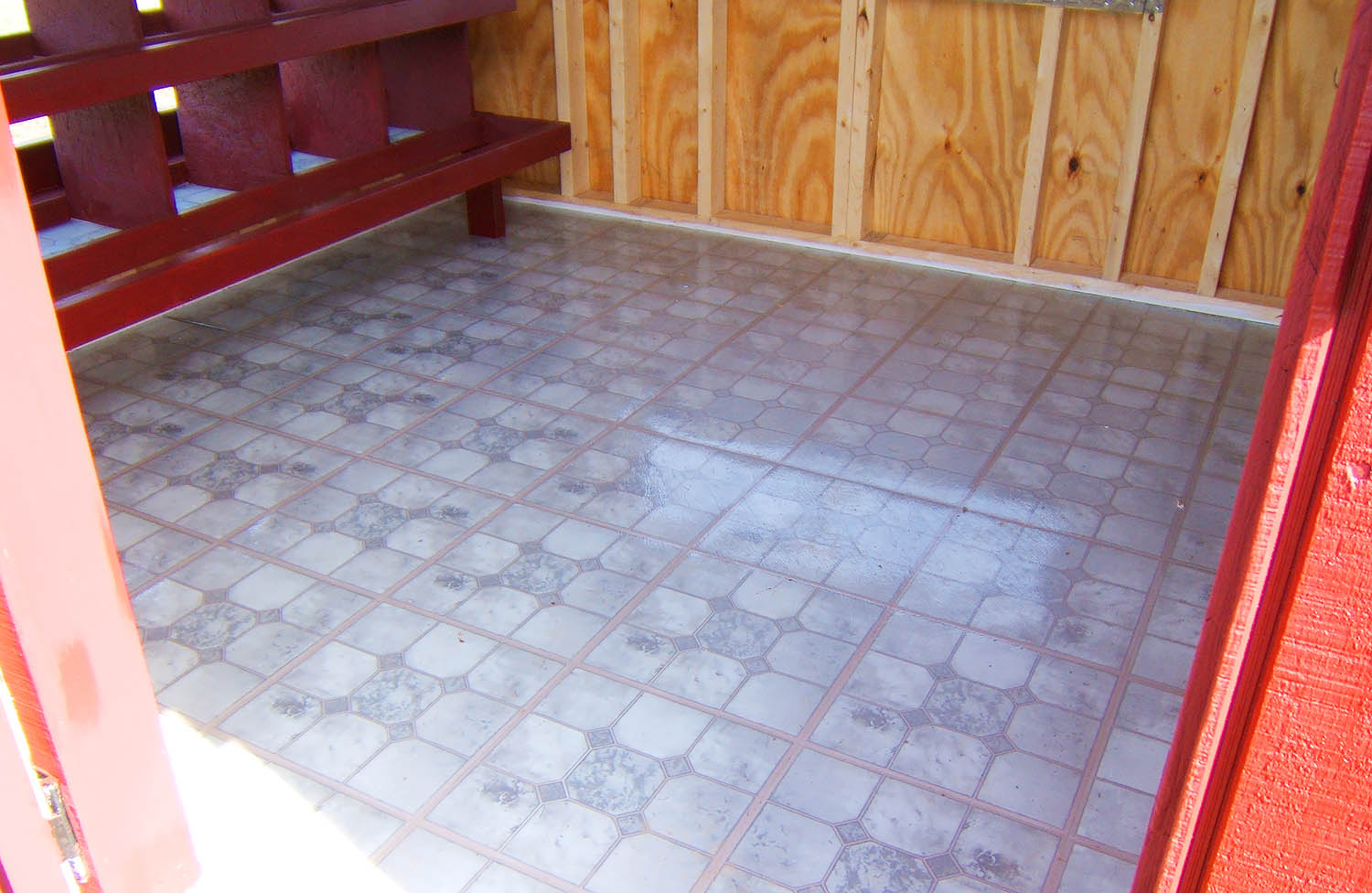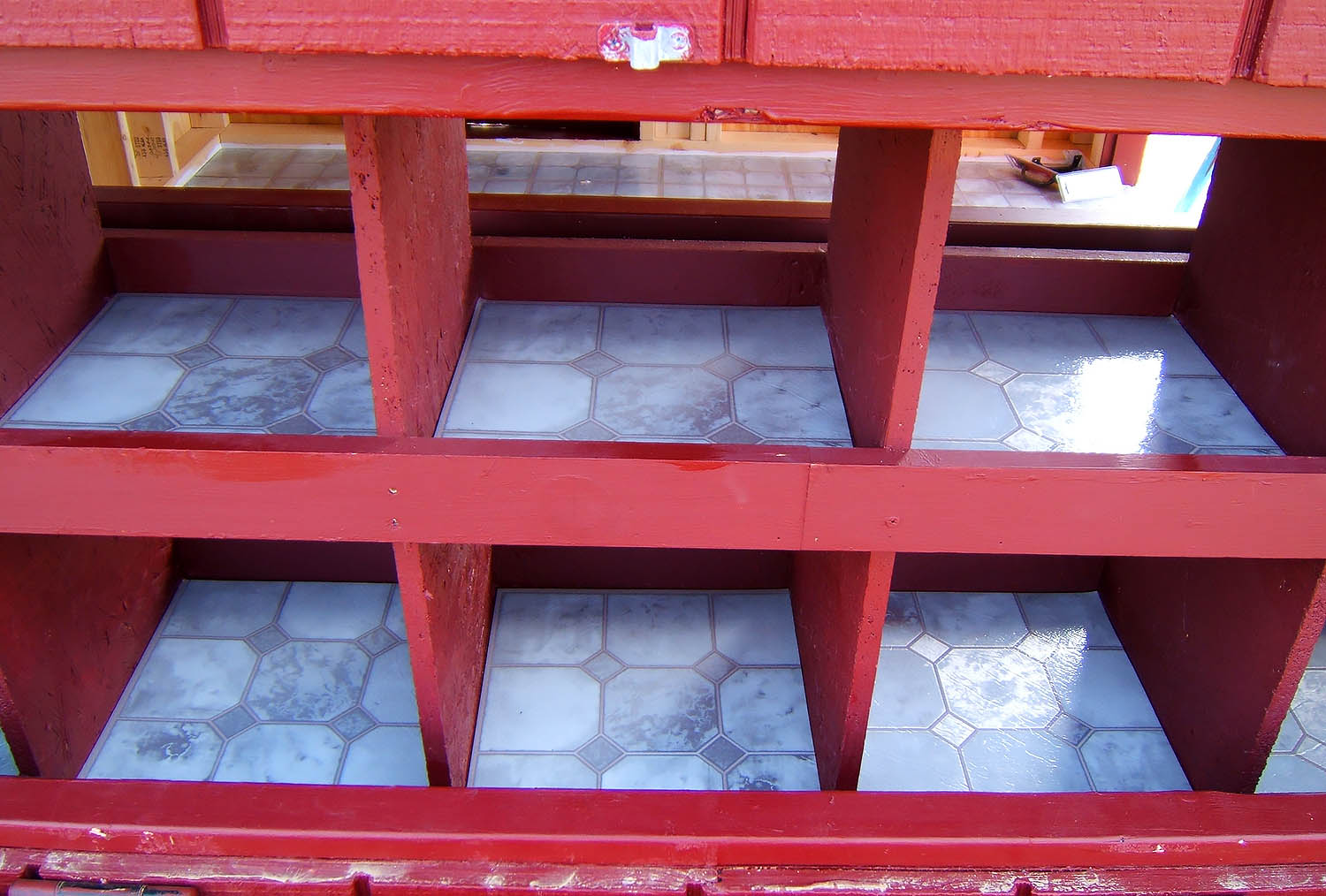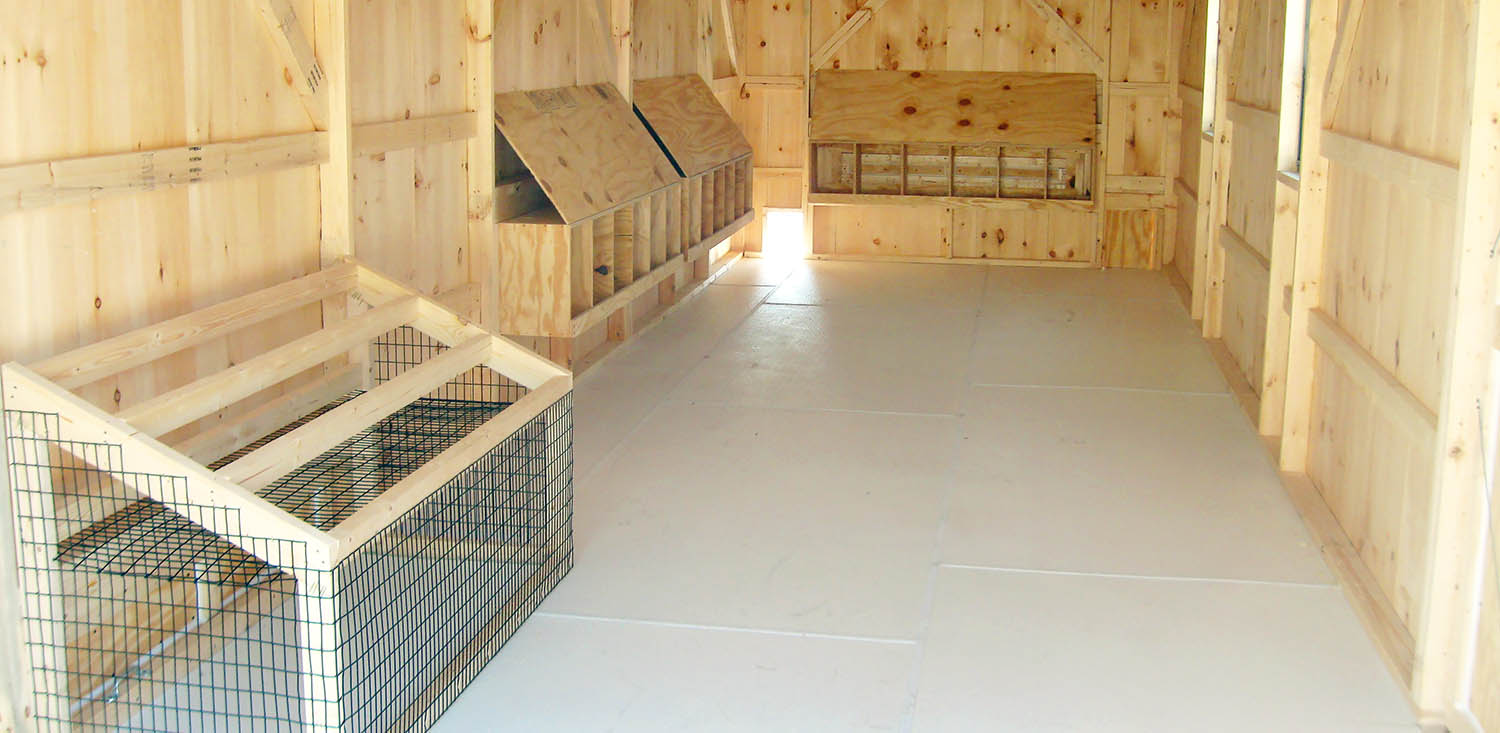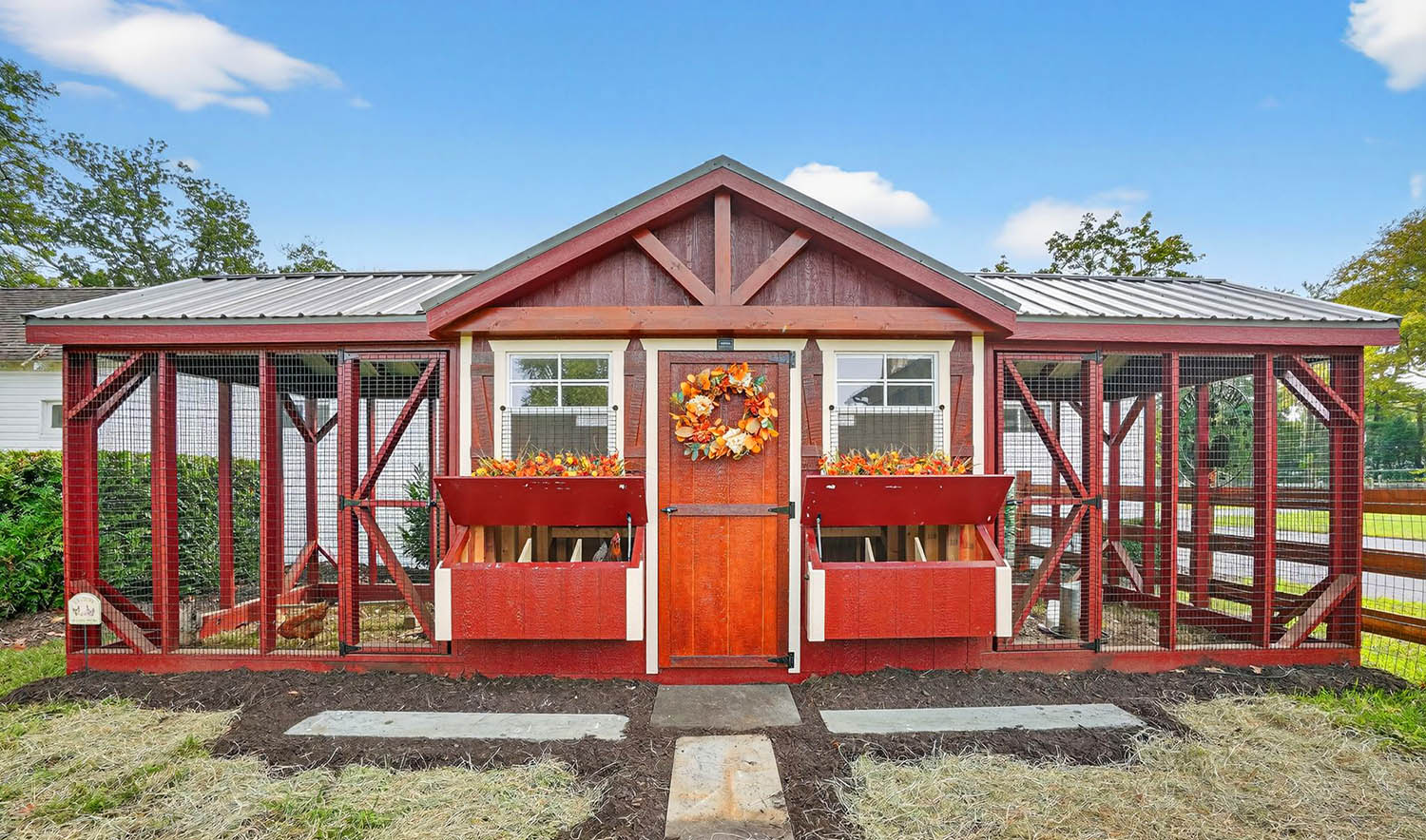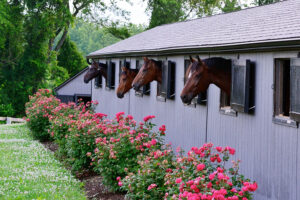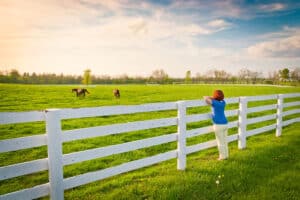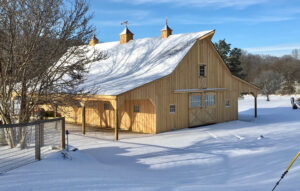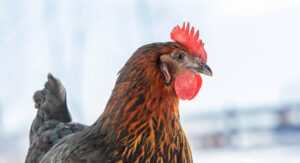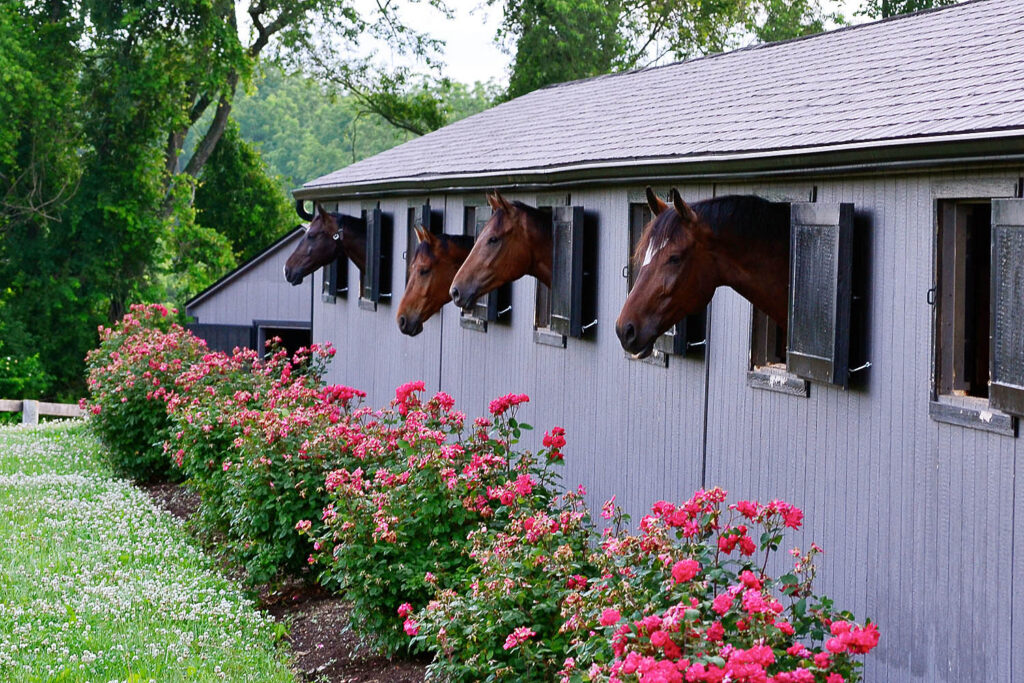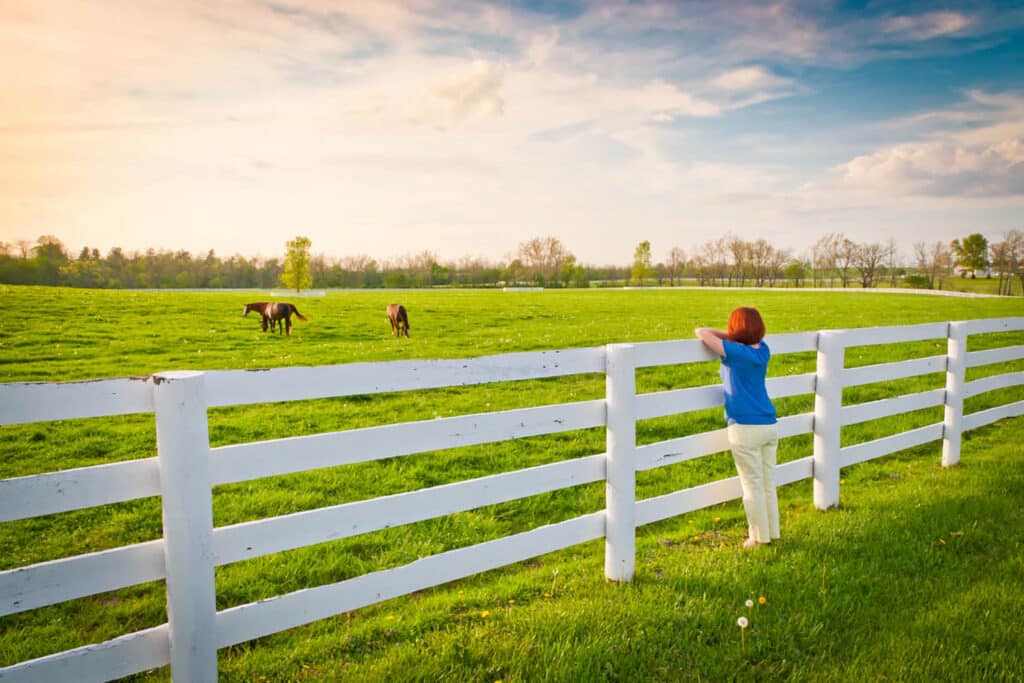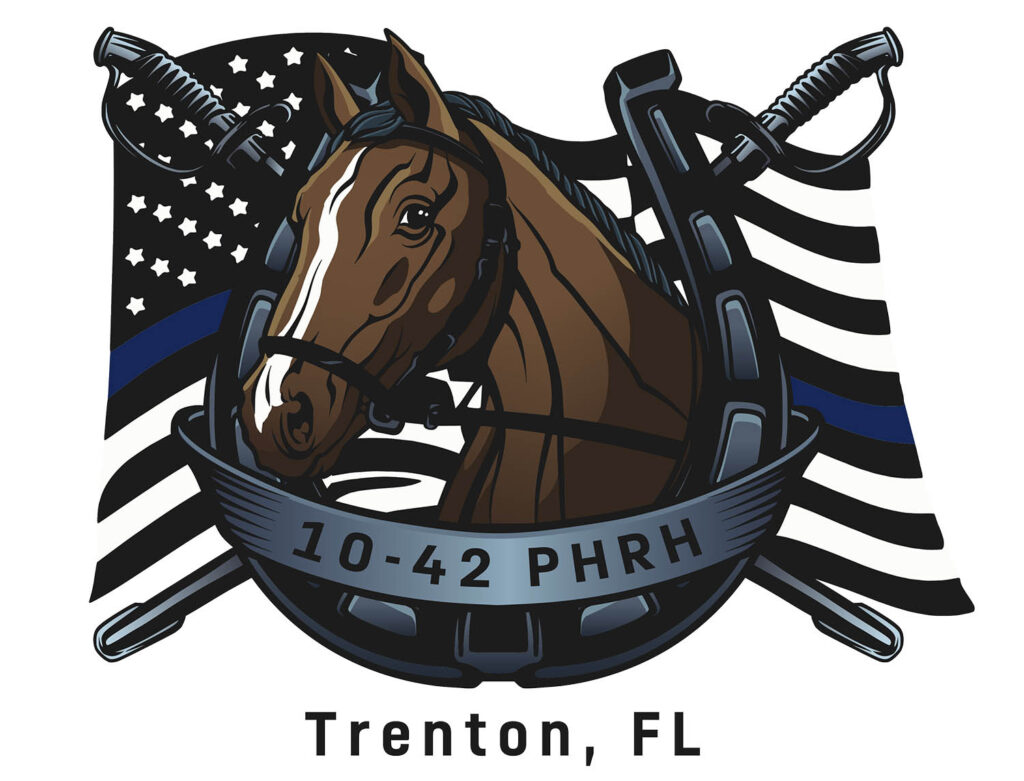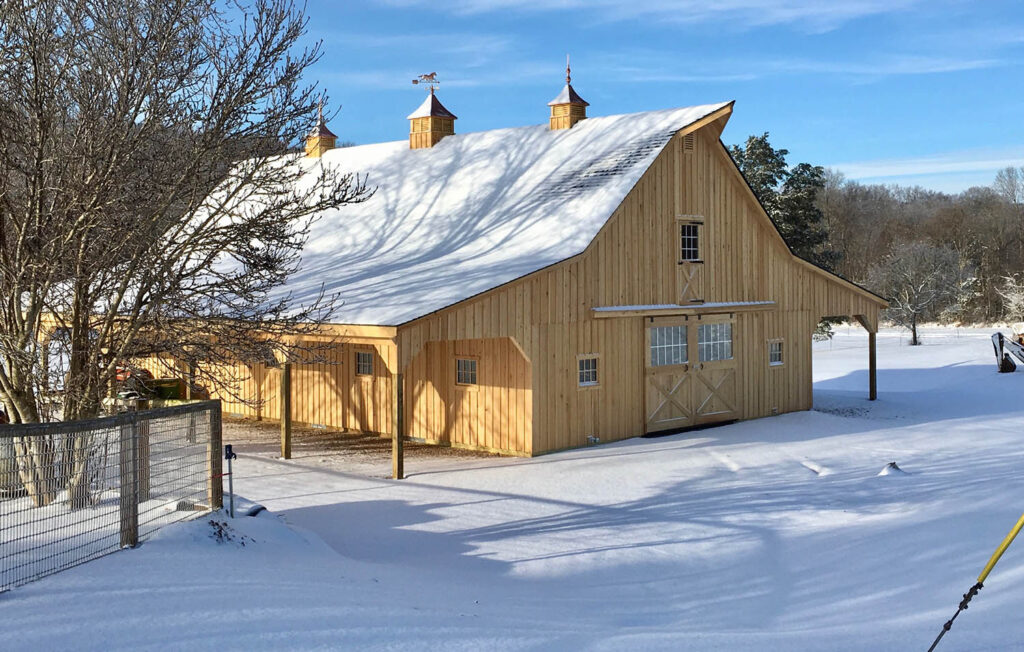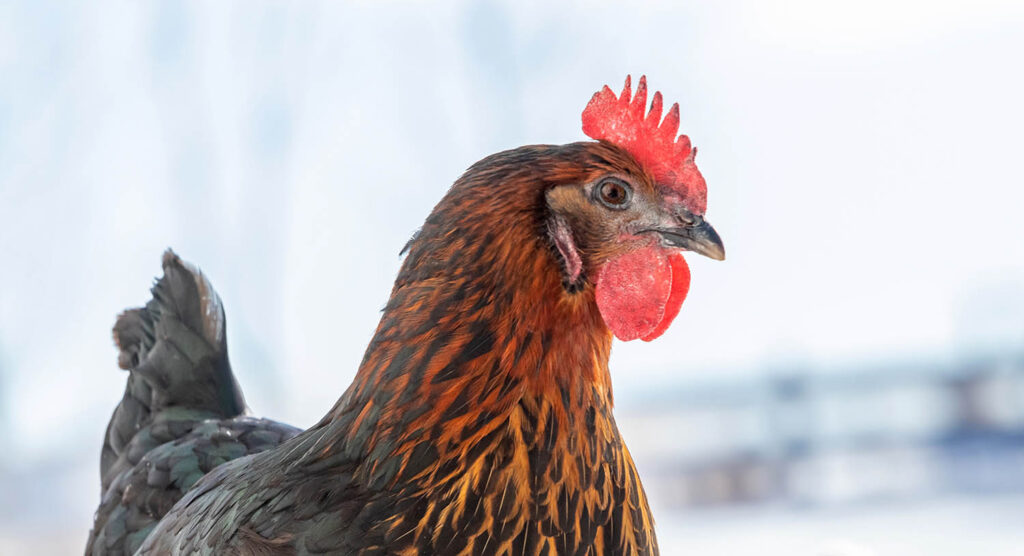In September 2025, Horizon Structures was excited to partner with Kerry Mann of HomeSteadHow — a leading voice in the modern homesteading community.
Following the release of his YouTube video showcasing the delivery of his new prefab Horizon Structures hen house/chicken run combo coop, we published a complimentary blog to provide details and answer some questions about Kerry’s structure.
Since one blog article couldn’t fully answer all of Kerry’s video viewers’ questions or explore the topic in depth, we decided to continue the conversation with additional posts that take a closer look.
This article focuses on flooring options for raised or prebuilt coops (and sheds converted to coops).
It started with this viewer comment: “The floor appears to be wood or a type of wood product. Would highly suggest putting down sheet linoleum to clean easy and eliminate absorption of smells. You can pull the linoleum up when it’s no longer good and replace it”
All chicken keepers know that a healthy and productive flock begins from the ground up. The floor of a chicken coop affects so many things! It controls moisture, promotes good hygiene, impacts predator security, contributes to insulation (both heat and cold), as well as having a direct relationship with the day-to-day workload for the keeper. Whether you are purchasing a new raised or prebuilt coop or converting a shed, the flooring choice will influence health outcomes, odor control, cleaning time, and both short and long-term costs.
This article discusses flooring in Horizon Structures chicken coops. For each option you will find a practical description, pros, cons, maintenance tips and more.
What Makes a Good Coop Floor?
Before comparing materials, it helps to set criteria. A reliable coop floor for backyard poultry should deliver the following.
Hygiene and cleanability
A durable surface that resists soaking is easier to scrape, sweep, and disinfect. Dry surfaces reduce odors and limit pathogen growth. Surfaces that trap moisture lead to ammonia buildup and respiratory stress.
Moisture and rot resistance
Droppings contain uric acid and moisture. Frequent damp conditions deteriorate unprotected wood. A floor should repel and resist liquids rather than absorb them.
Predator and rodent security
A floor should block digging pests like rats and deter predators. In raised coops, the nature of the structure itself helps. Robust and sturdy flooring material also plays a role in keeping chickens safe.
Durability and impact resistance
Perching birds hop down with regular impact. Feeders and waterers get moved around. Strong floors resist gouging and delamination.
Weight and retrofitting practicality
Prebuilt coops and sheds have weight limits. Some very heavy flooring options may be difficult to add in an existing building. A practical flooring solution or add-on fits your structure without complicated framing changes or placing weight-related stress on the structure.
If you dig into the topic of chicken coop flooring online, you’ll find plenty of ideas and opinions out there—but in this article, we’ll focus on the flooring materials that come standard or as optional upgrades on Horizon Structures’ chicken coops in addition to a few DIYs.
STANDARD Wood: Horizon coop STANDARD FEATURE: 5/8” LP ProStructure Flooring with SmartFinish. Ideal for raised or prebuilt coops as a complete, all-in-one floor. This type of flooring is excellent and a practical for all climates and weather conditions.
- Horizon Structures used to rely on pressure-treated plywood floors, but experience and advancing technology in building materials showed us there’s a better way. That’s why every Horizon Structures coop now comes with LP ProStruct Flooring with SmartFinish—engineered to outlast, outperform, and outshine traditional materials. This flooring incorporates Treated Wood Strand Technology and LP’s proprietary SmartGuard process (which includes marine-grade waxes, resins and zinc borate) to resist moisture, fungal decay, termite damage, and warping.
- This premium flooring has no knots or voids. And because it’s crack-resistant, it will continue to look great for years.
- An overlay of resin-saturated paper creates a sleek and beautiful appearance.
- More Information from the manufacturer about this flooring material HERE (website) and HERE (.pdf).
Maintenance: Sweep regularly. Use a pH-neutral cleaner for periodic cleaning. Avoid harsh chemicals, abrasive scrubbers, and pressure washers.
UPGRADE: Epoxy (over plywood) – Consider having us upgrade the floor of your Horizon Structures coop with a washable epoxy coating. It’s a relatively inexpensive option that will make your cleaning – including annual/bi-annual deep clean – much quicker and easier. The epoxy coating also provides an extra layer of protection between the wood underneath and the chicken droppings and litter.
- Exceptional water resistance and long service life
- Hard glossy finish that scrapes clean fast
- Excellent for deep litter systems because moisture stays on the surface.
- Best for keepers who want a low odor, low maintenance interior that stands up to frequent washing.
UPGRADE: Deep Litter Option: adds a 12” high, non-porous board extending from the floor up the sides of the coop and around the coop interior.
- The constant moisture from the decaying bedding can deteriorate wood. Choose this upgrade and we’ll added a 12” barrier where the bedding comes in contact with the coop walls. This keeps the moisture from soaking into the walls and prevents damage and rot.
- NOTE: the epoxy floor shown in this example is not included with the ‘deep litter’ upgrade. Epoxy can be added for an extra cost but is not required. The ‘deep litter’ upgrade can be utilized with the standard coop flooring.
DIY Coop Floors
Our standard coop flooring provides a dependable, long-lasting base for most coops in a wide range of climates and varying weather conditions. Still, since every chicken keeper has unique preferences, we felt it helpful to discuss a few other options too. Here’s a look at some common DIY flooring ideas we’ve encountered.
NOTE: Our LP ProStruct Flooring with SmartFinish standard flooring is manufactured to be a complete, finished flooring on its own and, according to the manufacturer, it is not intended to receive a covering, paint or coating. Doing so may compromise the integrity and intended functionality of the floor. If you want to incorporate any of these ideas into your Horizon Structures pre-built chicken coop, we suggest you ask us about substituting pressure-treated plywood for your coop floor. While we are not recommending plywood, we want our customers to know it is available (at an extra charge) for anyone that wants it.
Vinyl Sheet Flooring / Linoleum Over Wood: Add a continuous sheet of resilient vinyl flooring affixed (and sealed) to a wood subfloor, with edges and seams caulked.
Pros
- Smooth, nonporous surface that is simple to wash.
- Adds a moisture barrier to protect the wood below.
- Lightweight
- Affordable and easy to cut around posts or walls.
- Can be removed and replaced if/when it becomes worn.
Cons
- Seams and corners must be sealed well to keep liquids from reaching the subfloor.
- Scrapes from metal rakes or sharp grit can cut or mar the sheet.
- Cheap vinyl can crack in very cold temperatures.
Best for situations where an economical and simple wipeable surface is desired. Also common in shed-to-coop conversions where you want a bright and clean look.
Add it to your nest boxes, too! Low-cost and easy to replace when needed.
High Density Polyethylene Panels: Strong, durable sheets made from a type of plastic known for their high strength-to-density ratio. These panels are resistant to moisture, chemicals (and UV rays) making them suitable for a wide range of applications.
Pros
- Easy to clean: The non-porous surface can be wiped down or hosed off, making cleaning and disinfecting quite easy.
- Will not rot, swell, or delaminate.
- Scrapes clean smoothly and does not splinter.
- Long-lasting material that won’t easily rot or absorb odors.
- Easy to work with: Can be cut, routed, and drilled like wood but don’t require sealing or finishing.
- Safe and non-toxic
- Excellent for a deep litter system, providing a durable, easy-to-clean base that can be covered with bedding like hemp or pine shavings.
Cons
- Higher upfront material cost
- Expansion and contraction require proper fastening with oversized holes.
- Slippery when wet unless lightly textured.
- Sensitive to stress cracking
Best for professional grade conversions and serious hobbyists who want a nearly permanent floor that never needs painting. Great in humid regions.
Cleaning routine: Dry scrape, quick sweep, then a rinse. The surface releases dried droppings easily, so deep cleans are faster than with painted wood surfaces.
When it comes to choosing the best chicken coop flooring, opinions vary—but experience makes all the difference. After more than 20 years of building quality, Amish-crafted coops, Horizon Structures has tested and refined what truly works. Our flooring combines long-term durability, easy cleaning, and proven protection to keep your chickens healthy and comfortable year after year. From the ground up, every Horizon coop is built to give you peace of mind and your flock a safe, dependable home.
Ready to Design Your Own Coop?
CLICK HERE for Horizon Structures Chicken Coop Info and Pricing!
FOLLOW US: Facebook | Instagram | Blog | Newsletter
VISIT: HomeSteadHow website | HomeSteadHow YouTube


